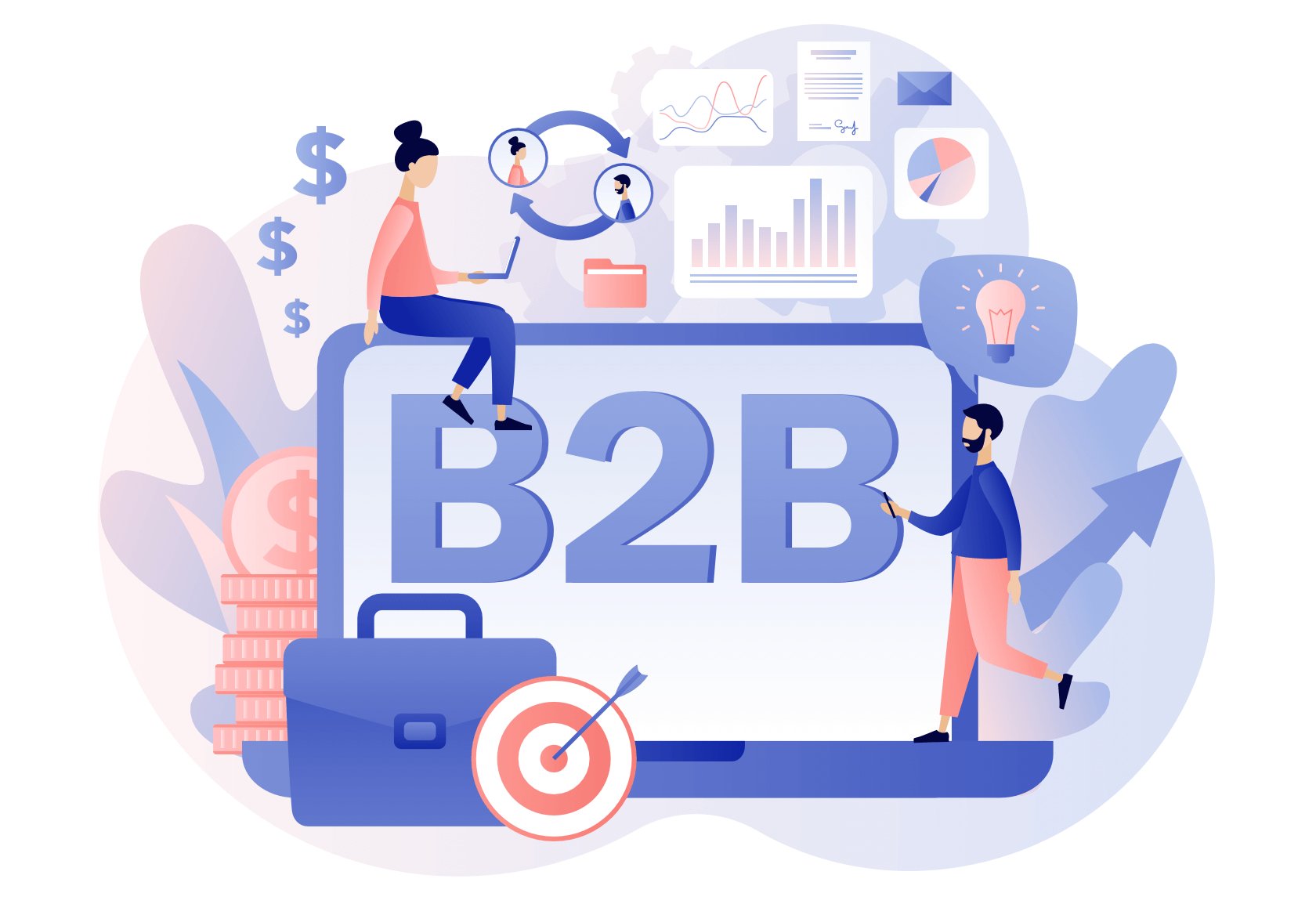B2B Magento Developer: IronPlane’s Approach
Hiring a Magento development agency? We review three case studies and talk about what to expect when you trust IronPlane as your B2B Magento developer.

Hiring a dedicated Magento developer (or agency partner) can optimize your eCommerce business in multiple ways, like offering the best solutions from technical and financial standpoints based on your business goals, continuously keeping your site updated and secure, tackling custom development projects, and speeding up your website. While there are many ways to find dedicated Magento web developers and agencies, choosing the right one can be a grueling task.
In this article, we’ll discuss best practices and common mistakes made during the process of hiring Magento developers. We’ll also show you how IronPlane — a team of dedicated Magento and Adobe Commerce developers — helps businesses achieve their eCommerce goals and walk you through three of our projects.
Magento and Adobe Commerce (built on the Magento codebase) are complicated eCommerce platforms requiring skill and expertise to maintain for optimal performance. The developers you choose will have an impact both in the short term success of your project and in the long term success of your website.
As a dedicated Magento development agency, IronPlane speaks with a lot of company executives who express frustration that the website they were promised either never materialized or materialized only superficially - unkindly described as being put together with duct tape and bubblegum.
These challenges are the direct result of choosing an inexperienced or unskilled Magento development team and result in not only frustration, but also direct negative impact on the online business iteself. Read more to learn how you can avoid this mistake.
Working with the right Magento developer or agency partner can take a lot off your plate. You can confidently offload many technical tasks to them and focus more of your efforts on growing your business. But, as you might guess, choosing the wrong developer or agency has the opposite effect. You spend time in unnecessary meetings, end up with solutions that don’t fit your needs (or aren’t delivered on time), and experience recurring issues. The tips below will help you avoid that.
Before you hire dedicated Magento developers or an agency, you must assess your:
Think about your problems and goals from both a business and technical perspective and how a dedicated developer can help with them. Clarifying these things will help you understand what’s valuable to you in a developer or agency partner (and conversely, what’s not important or relevant).
As you compare options, remember: Each developer or agency you evaluate should make an effort to understand your goals and help you crystalize how to get there. If a potential partner is simply offering a list of best practices and blanket recommendations without tailoring them to your circumstances, it’s best to look elsewhere.
One of the biggest mistakes we see organizations make is choosing a Magento developer or agency solely based on the lowest price.
This often ends up backfiring — cutting costs typically leads to cutting corners. As a result, the cost of redesigns, bug fixes, and lost revenue can far exceed the initial attractive price tag. While cost-effectiveness can never be overlooked, there are other crucial factors to consider.
Magento isn’t a platform that lets you do things halfway. In order to take full advantage of its capabilities and avoid technical issues, you need high-quality code written by developers who understand the ins and outs of the platform.
As a result, it’s best to look at your dedicated developer or agency as a long-term partner.
A dedicated partner will make the effort to understand your business, evaluate your technical challenges, and see their solutions through. They won’t treat the work as a one-time project. Plus, forming a long-term partnership ensures your site will be continuously improved and updated (e.g., by upgrading to the latest version or testing new Magento extensions).
As a specialized Magento and Adobe Commerce agency, many organizations come to IronPlane finally ready to invest in their online business after years of limited developer resources, poor coding practices, or working with multiple agencies that prioritize billable hours over website success. Often, this results in problems piling up and becoming increasingly complicated to resolve. This is such a common occurrence that we offer a separate Magento Rescue service for these cases.
It's essential to understand which hiring model suits your needs best. Should you go for a freelance developer, an internal development team, or an agency partner?
Each option has its benefits and drawbacks. When it comes to freelance developers, you gain the option to leverage multiple developers with different specialties, which can help you see new perspectives and access unique skillsets — however, there's no guarantee that a freelancer will only be working for you, which can lead to lesser-quality work. For full-time employees, you are able to have developers dedicated entirely to your business that you can communicate with easily — but it can be very expensive to hire, manage (and keep), full time developers.
In many cases, partnering with a specialized agency may offer the best of both worlds: a dedicated team of experts that can provide tailored solutions for your Magento development needs. A specialized development agency for Magento development like IronPlane offers a variety of services to help develop your solution — and then provide ongoing support to optimize and maintain it.
You can read more on this topic in our article Freelance Magento Developer vs Magento Development Agency.
When it comes to budgeting for your Magento site, it's essential to understand the cost factors involved. Let's break them down at a glance.
Freelance Magento developers and contractors usually charge either hourly or project-based rates. Rates can vary widely based on a few factors: experience, scope, location, and complexity being a few major ones. According to Upworks, the median rate for Magento 2 developers is between $18 and $39 per hour. To us, this number is out of whack with what a high-quality Magento developer will charge - often ranging from $85 - $250 per hour. The higher end of this spectrum is made up primarily of very specialized developers with extensive experience in a particular field of Magento development.
You can expect to pay a fair amount if you opt for a full-time, in-house Magento developer. As of June 2023, Glassdoor found that the average Magento developer salary is $107,163 annually — though this number varies depending on company size, location, and experience.
In the US, most high-quality Magento development agencies will charge between $150 and $225 per hour. These rates are often flexible depending on the specific contract you negotiate. Agency rates are substantially higher than the average freelancer because agencies have overhead costs of the support systems, project management, and operational costs.
Despite these higher costs, partnering with a Magento development agency can be cost-effective in the long run. Compared to an individual freelancer, agencies are staffed by a team of developers with varied skill sets that can provide a full spectrum of development and support services. Similarly, the agency provides you with resources on a consistent basis where freelancers and internal teams tend to have much more staff movement that is out of your control.
Whether you are considering a freelancer a job applicant or an agency responding to an RFP, effective interviewing can save time and help you identify the right candidate quickly. Here are a few quick tips for conducting effective interviews with developers:
Not every agency or developer will be a good match for your needs — and unfortunately, some may not be reputable at all. When hiring a Magento developer or agency, watch out for these red flags:
Take your time when making your hiring decision, as rushing can lead to costly mistakes. Carefully evaluate all candidates and consider the long-term impact of your choice on your Magento project's success.
By following these do's and don’ts — and considering the various hiring options available to meet your needs — you can find the right Magento developer or agency to help you build a successful eCommerce experience for your customers.
IronPlane is an eCommerce development agency, specializing in Magento Open Source and Adobe Commerce.
Our team of expert Magento developers (who are all certified Adobe Commerce Developers), project managers, and UX experts, help businesses achieve their goals with:
1. eCommerce audits and code reviews: These are essential assessments of your site’s code quality, including your core files, theme structure, security, site speed, and more.
2. Custom Magento and Adobe Commerce website design and development: We build everything from entire sites, modules, and extensions, to catalogs, sales tools, and custom integrations.
3. Magento and Adobe Commerce upgrades: Upgrades ensure you get the latest security patches and updates released by Adobe without breaking your site in the process.
4. Ongoing Magento and Adobe Commerce support and optimization: This helps you achieve your performance, reliability, security, and conversion goals.
Outside of these core eCommerce solutions, we offer extra services such as UX and conversion rate audits, Magento-optimized hosting, accesibility, site security, and performance monitoring.
We look at each client as a long-term partner; the majority of our clients remain with us for years after their initial project is complete.
In the next sections, we’ll walk you through our exact methodology and work process.
Most of our projects can be broken down into three steps.
Step 1: Initial call to discuss the challenges with your Magento or Adobe Commerce site
Our goal is to help you make the best technical and financial decisions for your website projects. That’s why we provide a free consultation before you sign on with us to ensure our services are the right choice for your needs.
Step 2: Business discovery and code audit
The next step is to perform a site audit and talk about your goals for your online business and how you want your Magento site to support them.
The discovery element is one the most important parts of a successful partnership because it helps us understand the greater goals that your website must help you achieve, operational processes and business rules, and design preferences. This foundation ensures your business priorities drive the technology, not the other way around.
We provide three different site audit options:
Step 3: Project planning and deployment
After discussing your business goals and analyzing your site, we start planning the work by clarifying and prioritizing the projects that we need to complete. This ensures that all project requirements are clearly described and easy to follow.
Once this strategic planning is done, we kick off the project.
During our work together, you’ll be assigned to a dedicated Solutions Specialist who acts as a strategic partner between you and our dev team.
And while every client is different, there are a few principles we maintain throughout our work:
IronPlane brings together highly specialized, certified Magento developers, designers, and project managers to help companies achieve their business and technical goals.
Whether it’s front-end or back-end work, extension development, updates, migrations from Magento 1 to Magento 2, Magento theme development, or anything else in the Magento or Adobe Commerce world, our team can help you find and apply the right solutions for your online business.
Related reading:

Hiring a Magento development agency? We review three case studies and talk about what to expect when you trust IronPlane as your B2B Magento developer.

Our Magento site optimization guide covers best practices to improve website performance. We also review our development agency's process and case studies.

Building a custom theme in Magento requires the skill (and upkeep) of an expert developer — we cover IronPlane's process for theme development in Magento.